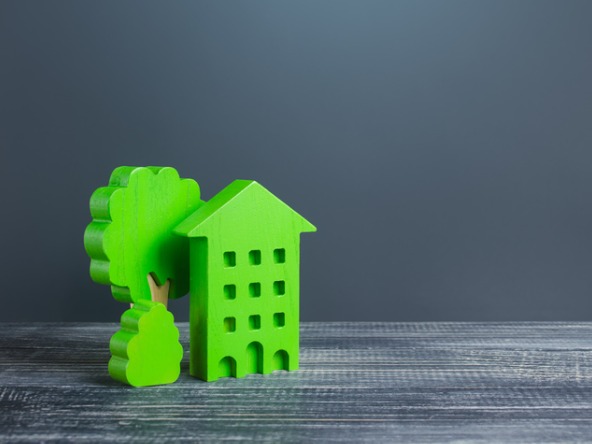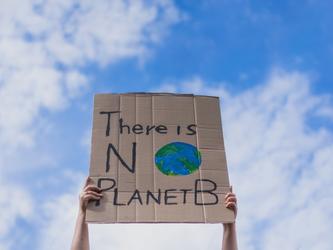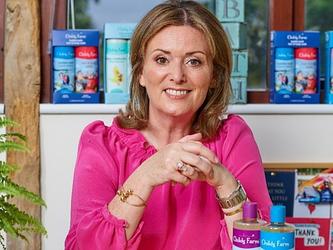Will your eco credentials come out in the greenwash?

In 2022, businesses will face closer scrutiny from the Competition and Markets Authority (CMA) as it prepares to act against firms that breach new consumer laws designed to protect shoppers from greenwashing.
Industries such as fast-moving consumer goods (FMCG), fashion, travel beauty and cleaning products are just some of the sectors that consumers appear most concerned about misleading claims. Businesses that create communication campaigns and design work under the pretence that they are in some way environmentally beneficial, while contradicting their own environmental and sustainability record, could find themselves in trouble.
Following investigations by the CMA in early 2021, it discovered that 40% of green claims made online could be misleading – suggesting that thousands of businesses could be breaking the law and potentially damaging their brand.
Such damage can be devasting for those accused of greenwashing. The law is designed to penalise those businesses that are falsely taking credit for being green while ensuring genuinely eco-friendly firms receive the recognition they deserve.
Examples of greenwashing might include brands that use ambiguous language around ‘eco’ or ‘sustainable’ references, using unofficial own brand ‘eco’ logos and hiding important environmental information that would reveal a true carbon footprint.
Value shifts among conscious consumers
Businesses are desperate to portray themselves in a more positive light as they seek to tap into a growing shift in consumer values, unlock new revenue and report on how they are measuring, managing and improving their eco-credentials.
Recent research from Hall & Partners’ inaugural Conscious Brand 100 Index shows that businesses that are perceived as being eco-friendly, sustainable and genuinely conscientious are more likely to deliver stronger business performance and be considered by consumers.
In our research, the world’s top 15 conscious brands showed an increase in annual revenue growth from 15% in 2019 to 17% in 2020. The bottom 15 placed brands dropped from 7.35% to -9% during the same period.
Furthermore, our global research conducted among more than 20,000 consumers shows that consumers place greater emphasis on values such as sustainability, social equality, authentic activism, diversity and inclusivity.
Younger consumers tend to have bigger expectations too, with 75% of younger consumers ( 18–34-year-olds) thinking businesses should take greater responsibility and do more to create a better and fairer world for everyone. All ages of respondents agree that businesses need to take a stand on the important issues impacting the world today, while more than half of consumers ( 57%) believe that brands need to do more to positively impact society.
In a world where consumers demand ethically led, authentic action from businesses and brands, protecting the environment and working together towards a more sustainable future was a top priority for all generations and was ranked as the number one value ( 69%).
What does sustainability really mean?
The problem with ensuring that businesses are communicating in a fair, honest and legal way, is that when it comes to the issue of sustainability, there’s often confusion and misunderstanding due to how it is interpreted. The term ‘sustainability’ means different things to different people, particularly if businesses are, for example, measuring it against the UN’s commonly used benchmark of 17 sustainable development goals (SDGs).
The challenge for businesses will be to ensure that when describing their ‘purpose’, they tread carefully and avoid crossing the fine line into greenwashing territory.
For some industries, examples of greenwashing are more obvious. For example, oil and gas companies that claim to be advancing the cause of low-carbon and renewable energy, while still investing most of their annual capital expenditure into non-renewable energy, can hardly be called environmentally friendly.
Non-corporate, smaller businesses may get away with greenwashing if consumers fail to recognise when their communication campaigns don’t meet the required standards of authenticity due to the deliberate (or unintentional) use of misleading language and/or design work.
Business can be ethical and profitable
As we start 2022 and look forward optimistically to a world where Covid-19 is eventually consigned to the history books along with previous pandemics, businesses and their associated brands must recognise that they have a role to play in helping to rebuild society. They have the power, clout, loyalty and leadership to become the glue that holds communities together. Consumers look to brands for guidance, for fast decision-making and the kinds of innovative approaches that often elude governments hampered by bureaucracy.
Greenwashing will only go so far before it backfires, but a meaningful and objective approach, aided by the CMA’s ‘Green Claims Code’ awareness campaign, will ensure business reputations remain intact, help generate strong financial growth, and more importantly, safeguard businesses from legal misdemeanours.
Businesses must clearly communicate their marketing campaigns and green credentials, without ambiguity and above all, ensure they are doing so honestly and transparently. If not, then 2022 may not be the happy year they had hoped for.
Kurt Stuhllemmer is a partner at Hall & Partners.

We hope you enjoyed this article.
Research Live is published by MRS.
The Market Research Society (MRS) exists to promote and protect the research sector, showcasing how research delivers impact for businesses and government.
Members of MRS enjoy many benefits including tailoured policy guidance, discounts on training and conferences, and access to member-only content.
For example, there's an archive of winning case studies from over a decade of MRS Awards.
Find out more about the benefits of joining MRS here.













0 Comments